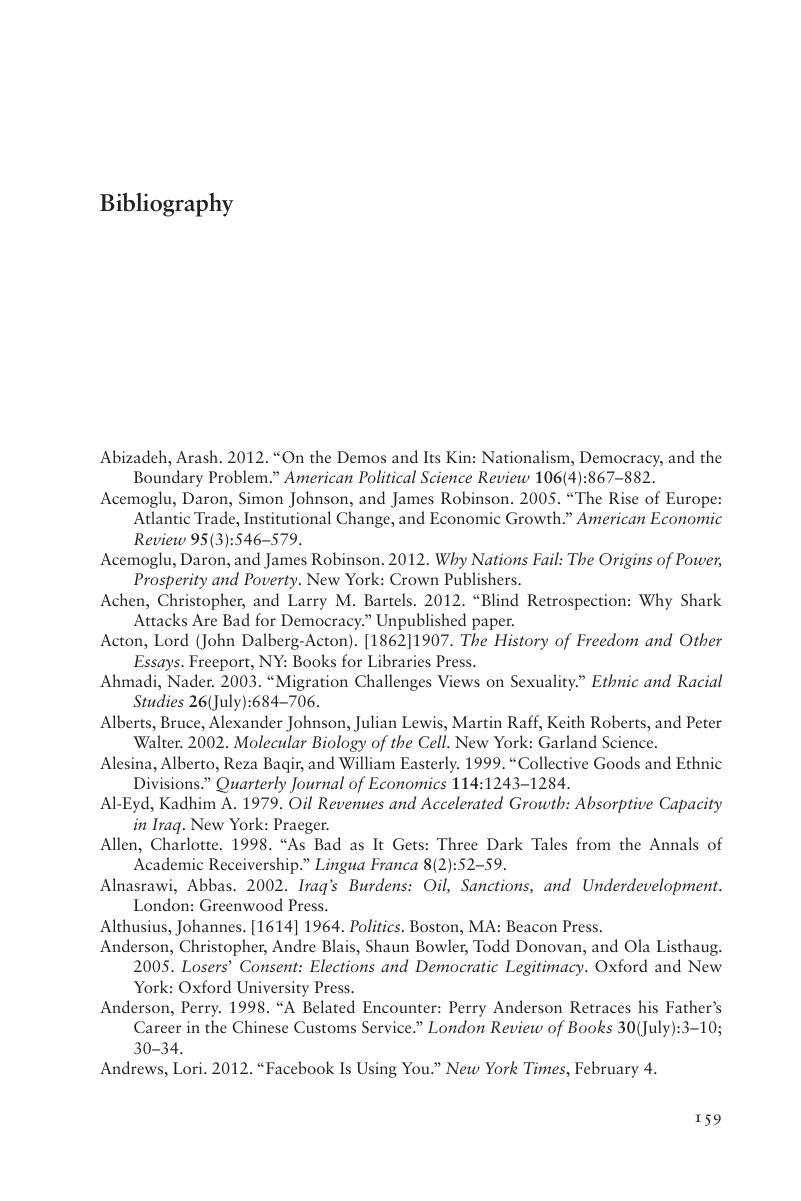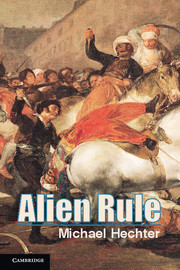Book contents
- Frontmatter
- Book part
- Contents
- List of Figures and Photographs
- Preface
- 1 Introduction
- 2 Alien Rule and Its Discontents
- 3 The Failure of Legitimate Rule in Iraq
- 4 Resistance to Alien Rule in Taiwan and Korea
- 5 Dynamics of Military Occupation
- 6 Academic Receivership as Alien Rule
- 7 Conclusion
- Bibliography
- Index
- References
Bibliography
Published online by Cambridge University Press: 05 June 2014
- Frontmatter
- Book part
- Contents
- List of Figures and Photographs
- Preface
- 1 Introduction
- 2 Alien Rule and Its Discontents
- 3 The Failure of Legitimate Rule in Iraq
- 4 Resistance to Alien Rule in Taiwan and Korea
- 5 Dynamics of Military Occupation
- 6 Academic Receivership as Alien Rule
- 7 Conclusion
- Bibliography
- Index
- References
Summary

- Type
- Chapter
- Information
- Alien Rule , pp. 159 - 186Publisher: Cambridge University PressPrint publication year: 2013



